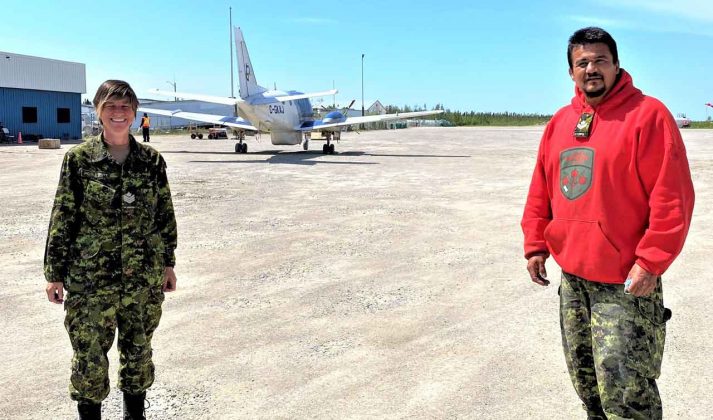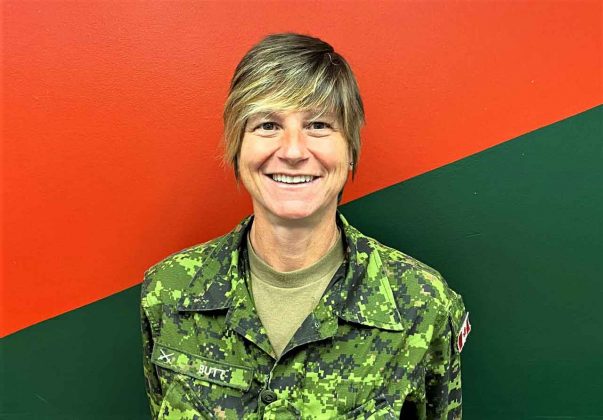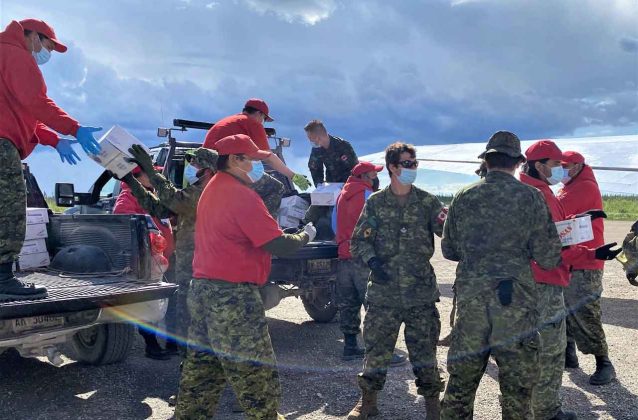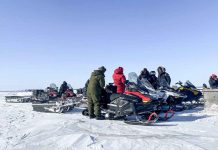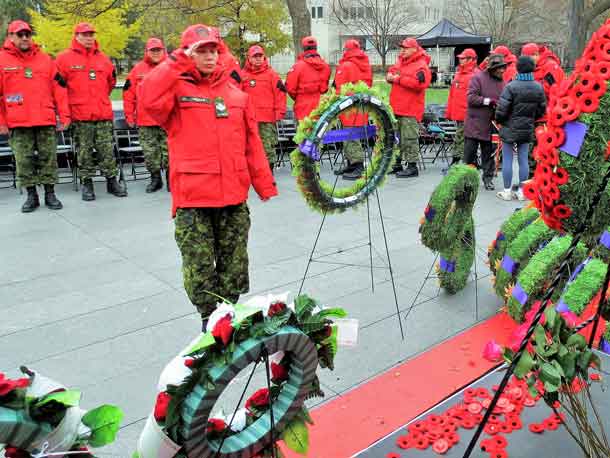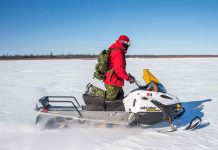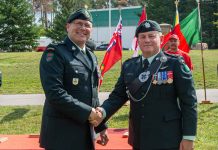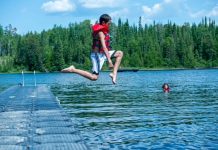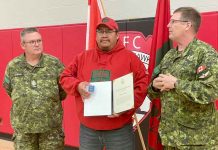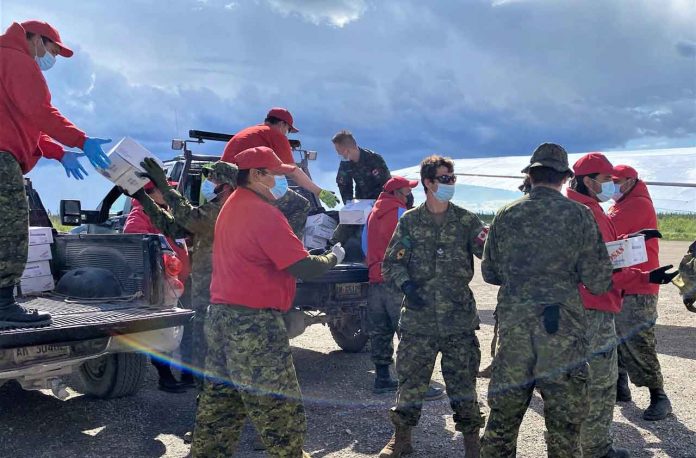
by Peter Moon
The Canadian Rangers of Northern Ontario have their first female Canadian Ranger Instructor.
Canadian Ranger Instructors are full-time members of the Canadian Army who travel regularly from their headquarters at Canadian Forces Base Borden, near Barrie, to provide specialized instruction to the 600 Canadian Rangers based out of 32 First Nations across the Far North of Ontario. Rangers are part-time army reservists.
The instructors’ duties require them to go on the land with the Rangers in all weather conditions and provide them with specialized military training in their communities.
The job has always been open to both male and female members of the Canadian Army. But until last May when Sergeant Janet Butt became a Canadian Ranger Instructor all instructors, since the opening of the first Ranger patrol in Moose Factory in 1994, have been male.
“I am really honoured to be the first female Canadian Ranger Instructor,” said Sergeant Butt. “But I don’t look at it as being a woman in the position. I look at it as being another instructor. I have no on- the-land experience and I hope the Rangers are going to teach me about that as much as I can teach them about other things”
She joined the navy in 1994 and served as a boatswain before becoming a skilled medic in the Canadian Army.
“This has been a long time coming,” said Major Douglas Ferguson, acting commanding officer of the 3rd Canadian Ranger Patrol Group, which commands the Rangers of Northern Ontario. “She’s our first female Canadian Ranger Instructor and it’s great she’s taken the opportunity to take a leadership role with the Rangers. Almost half of our Rangers are female.”
“I’m happy to learn about her and I’m sure there will be more female instructors soon,” said Sergeant Matthew Gull, commander of the Ranger patrol in Peawanuck, a small Cree community near the west coast of Hudson Bay.
”There’s no reason why a female can’t be a Canadian Ranger Instructor. I am sure she will be welcomed. My number two (Master Corporal Pamela Chookomoolin) is a female and she does an outstanding job. Most of my patrol members are female. I have three daughters and two of them are Rangers and the youngest is a Junior Canadian Ranger.”
The Junior Canadian Rangers is a culturally appropriate army program for boys and girls aged 12 to 18 in the North. There have been a handful of female Junior Canadian Ranger Instructors in Ontario in the last 20 years.
Master Warrant Officer Carl Wolfe, a company sergeant major at the Ranger headquarters, said Sergeant Butt’s actions as a new instructor were impressive in helping three First Nations during the COVID-19 crisis. “Hands down, regardless of her gender, she is a solid person,” he said.
Sergeant Butt headed the Ranger team in Lac Seul in May when the community was hit by a serious COVID outbreak. Members of the local Ranger patrol were joined by Rangers from other communities to provide a range of services for the residents. “I was honoured to be able to go in and help them,” she said. “It was a great learning experience being able to help those families in need and see how grateful they were for our assistance and help.”
After a couple of days helping Rangers dealing with a serious COVID-19 outbreak in Fort Albany First Nation she was sent to lead the Ranger response to the COVID-19 crisis in Kashechewan where more than 200 of the remote First Nation’s 1,800 residents were diagnosed with the infection. The population was under a 24-hour curfew order with many confined to sometimes seriously overcrowded homes.
When the army sent members of the 1st Battalion of the Royal Canadian Regiment to Kashechewan to assist the Rangers Sergeant Butt remained in charge of the Rangers and the soldiers. The military members worked together unloading aircraft and distributing water, food, medicines, and other supplies to community members. They erected tents and other shelters to provide isolation units for quarantined residents.
“We worked long days,” she said, “And I had to work with the whole community and all the other teams that were there to help. It was a unique experience for me and very rewarding to see the COVID-19 numbers come down while I was there.”
She said she is looking forward to starting normal Canadian Ranger Instructor duties when the COVID-19 crisis ends.
“I’ve never been in the North before,” she said, “and I enjoy going and seeing the Rangers’ culture in their communities. It is an honour to serve with them.”
(Sergeant Peter Moon is the public affairs ranger for the 3rd Canadian Ranger Patrol Group at CFB Borden.)


